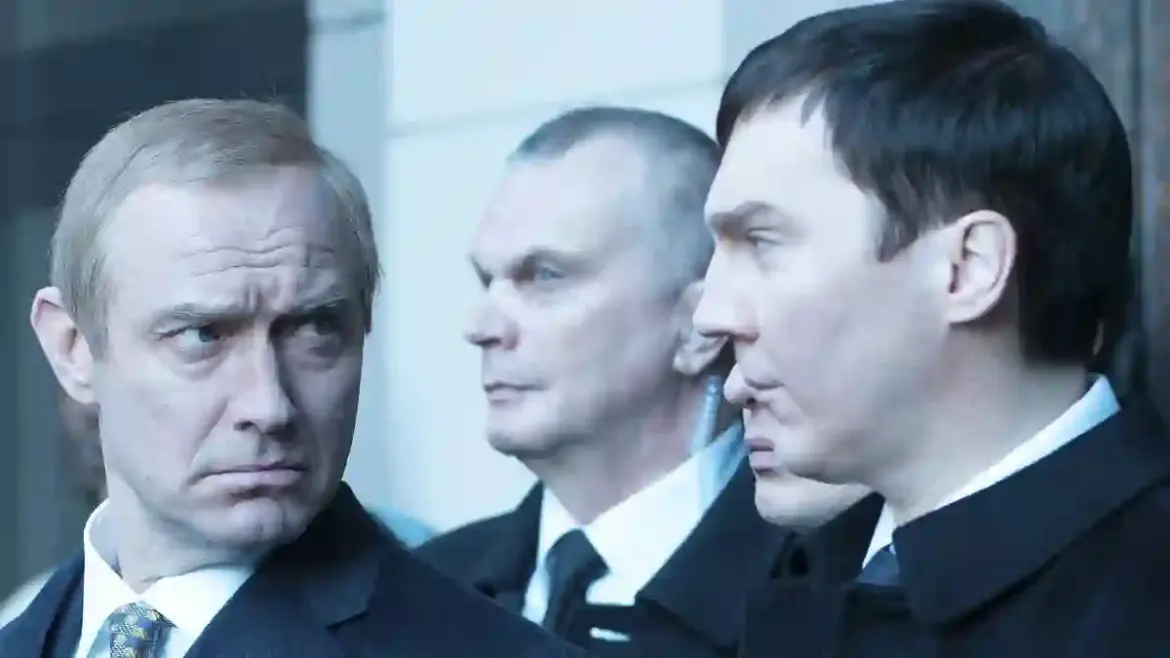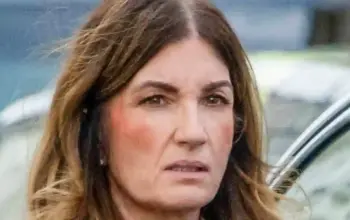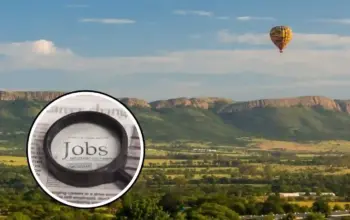Politics and cinema collided in Venice this week with the world premiere of The Wizard Of The Kremlin, a gripping political thriller that digs deep into the rise of Vladimir Putin.
If you thought you knew the man who has dominated Russia for decades, Jude Law’s portrayal might make you see him in a new light.
Law is building an intriguing collection of roles as formidable, often ruthless figures.
After playing the fiery King Henry VIII in Firebrand (2023), he now steps into the shoes of Putin—less gouty than Henry and thankfully less prone to marital executions, but no less chilling.
A Story Adapted from Page to Screen
Directed by French filmmaker Olivier Assayas, the movie is adapted from Giuliano da Empoli’s bestselling novel of the same name.
It explores the transformation of Russian politics after the fall of the Soviet Union, tracing how a former KGB officer from St. Petersburg eventually consolidated power over an entire nation.
The story unfolds through Vadim Baranov (Paul Dano), a lightly fictionalised version of Putin’s real-life spin doctor, Vladislav Surkov.
Baranov becomes our lens into the shadowy corridors of Russian politics, showing us how influence and ambition shape the nation.
Meeting Baranov
Baranov’s story begins when a visiting American journalist (Jeffrey Wright) arrives in Moscow to research a biography of long-dead satirist Yevgeny Zamyatin.
Through online correspondence, the two connect, and Baranov invites the journalist to his elegant dacha.
What follows is a series of revealing flashbacks, charting Baranov’s life and career.
On a personal note, the film reminded me of my time serving on the Moscow Film Festival jury before Russia’s invasion of Ukraine.
Back then, an interpreter explained that while many celebrated the end of Communism, older generations mourned the collapse of familiar social and political structures.
The Wizard Of The Kremlin captures that tension perfectly.
Russia in Transition
Baranov’s father, a director at a Soviet cultural institute, predicts the country’s upheaval the moment he sees Gorbachev drinking milk instead of vodka on live TV—a symbol of Russia moving away from its old ways.
For Baranov, however, the chaos opens doors. He becomes a theatre director, then a TV producer, navigating the decadent and sometimes brutal Moscow of the 1990s.
At a glamorous party, he falls for a talented singer (Alicia Vikander), only to see her stolen by his charming friend Dmitry (Tom Sturridge), whose clever manipulation of a failing brandy consignment turns him into a wealthy oligarch overnight.
In this world, Baranov observes, it’s not wealth but “proximity to power” that truly matters.
Entering the Kremlin
Baranov’s connections lead him to Boris Berezovsky (Will Keen), a real-life oligarch who introduces him to a rising political figure—Putin.
Law’s portrayal is subtle yet striking.
He keeps just enough of his natural accent to make the performance approachable, and with a little imagination, the resemblance to Putin is uncanny.
As Yeltsin falters, Putin is nudged into the Kremlin. Berezovsky dismisses him as “no rocket scientist, but for now he’ll do just fine”—an assessment with deadly consequences, considering Berezovsky’s later mysterious death in 2013.
Inside Putin’s Mind
With Baranov by his side, we witness the key decisions that defined Putin’s early rule: the second Chechen War, the annexation of Crimea, and the obsession with the 2014 Sochi Winter Olympics.
The film emphasizes that Putin’s worldview is deeply shaped by what he sees as the post-Soviet humiliation of Russia.
One scene has him fuming after a G20 summit, complaining he was treated like the leader of “some insignificant country like Finland.”
A Thriller with Political Insight
Assayas frames the film as a thriller rather than a dry political lesson.
While it blends fact with artistic interpretation, it gives viewers a fascinating window into the dynamics that led to Putin’s 2022 invasion of Ukraine.
The film reminds us that while movies are not classrooms, they can offer a vivid perspective on world events—and perhaps a better understanding of why history unfolded the way it did.
There’s currently no UK release date for The Wizard Of The Kremlin, but its Venice premiere has already generated a buzz that suggests it’s worth keeping an eye on.



